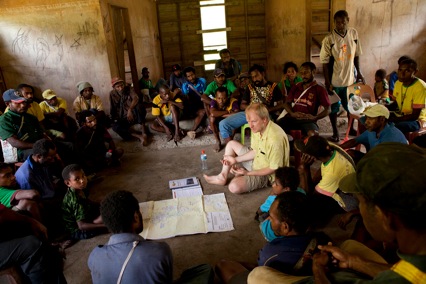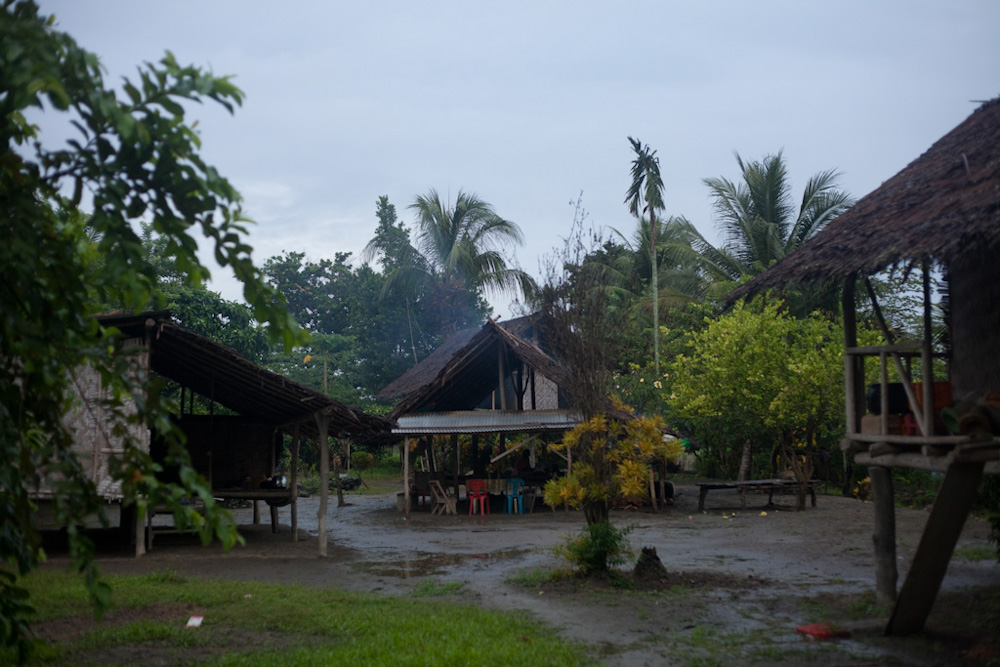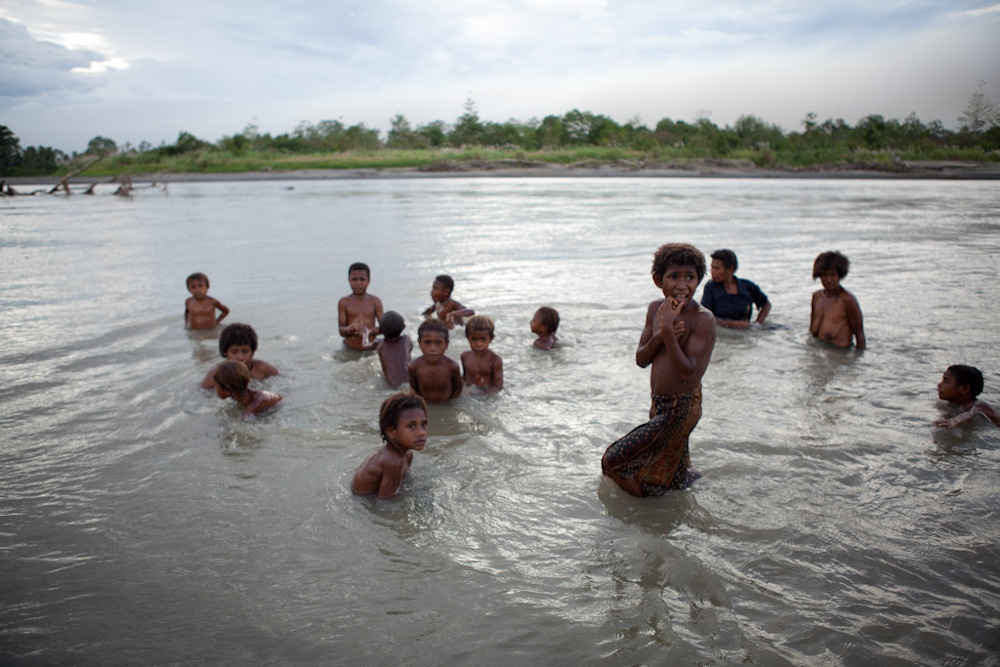Wafi-Golpu
The work presented here is from MPI’s engagement with Communities in Morobe Province (2011-201) and a PhD (2016-21) by MPI’s Executive Director, Charles Roche.
Based on long-term and extensive Community engagement our work challenges the way how society thinks about mining – the acknowledged assumptions, unchallenged practices and biases that drive poor outcomes from mining.
PhD
A participant action research (PAR) based thesis which applies a critical lens to community outcomes and extractive relationships, documenting a range of outcomes, injustices and practices that challenged the narrative of mining for development and prompted a re-conceptualisation of extractive industry relations and practices that could improve mining outcomes within a more ethical, pluralistic approach.
The research is presented in five articles and an exegesis. In reverse publishing order they are:
- Understanding why impact assessment fails; a case study of theory and practice from Wafi-Golpu, Papua New Guinea (March 2021) open access
- Unseen Existences: Stories of life from Venemebeli (September 2020) open acess
- Mining in Papua New Guinea: A complex story of trends, impacts and governance (June, 2020)
- Human flourishing and extractive-led development; “The mine will give me whatever I like” (April, 2019)
- Extractive Dispossession: “I am not happy our land will go, we will have no better life” (June, 2019)
The thesis, From hedonistic extraction to human flourishing: Applying disruptive and participatory concepts for a pluralist mining ethic (March, 2021) can be found at the Murdoch Repository (careful is 15mb)
Articles abstracts and links are presented below along with summarised and Tok Pisin translations ( a work in progress).
Understanding why impact assessment fails; a case study of theory and practice from Wafi-Golpu, Papua New Guinea
Authors: Charles Roche, Martin Brueckner, Eugene John, Nawasio Walim, Howard Sindana, the Venembeli Community
Abstract: From an instrumental or management perspective, impact assessment (IA) is a process of identifying impacts, finding solutions and achieving project approval. A recipient community, however, has a completely different perspective. For them the IA is about living with impacts, individually and collectively, perhaps over generations, and contested processes of self-determination, consultation and exclusion. IA practitioners live in a third space, usually bound to the proponent but also aware of responsibilities to communities and eco-systems. Seeking to better understand how IA is practiced and experienced, we explore the proposed Wafi-Golpu mine, located in the Morobe Province of Papua New Guinea. Determinably focused on local effects we situate the proposed mine within the context of the national mining experience and discuss how IA practices see local and/or Indigenous communities. We find that the Wafi-Golpu IA is blind to local ways of being and seeing the world, with an opaque and arbitrary assessment that reflects its technical and Western basis and bias. We finish with observations about the proposed Wafi-Golpu mine and IA that is relevant to the approval process, as well as making a decolonial, Southern contribution to IA theory and practice, extractive industry regulation and mining-affected communities elsewhere.
Available open access/free from the journal website
Summary and Translation in preparation
Unseen existences_ Stories of life from Venembeli, Papua New Guinea
Authors: Charles Roche, Rochelle Spencer, Eugene John, Nawasio Walim, Howard Sindana, the Venembeli Community
Abstract: This article presents stories of life from Venembeli, a remote village in the hinterlands of Papua New Guinea. Caught up in a contentious mining development, villagers both long for and fear the development promised by global capitalism. But with a forty year development history, the proposed Wafi-Golpu mine has become the only lens through which the present or future is imagined and understood. We contend that this cultural hegemony has twisted the way stakeholders understand the mine’s outcomes and impacts. Mindful of the power of language and dominant cultures, we adopt a refined version of the Melanesian tok stori methodology to capture stories that, together with illustrations and our own observations, make visible and amplify the stories from Venembeli. The stories illustrate a different reality to those presented in the usual western, technical and reductive impact assessments; offering insights into a complex human story that requires contemplation and empathy if the communities are to be valued, heard and respected. The outcome of telling these stories is uncertain, but this emancipatory participatory action research will help readers and stakeholders to better understand the com- munity, and to prioritise their human flourishing to ensure positive, rather than negative mining legacies.
Available open access/free from the journal website
Mining in Papua New Guinea: A complex story of trends, impacts and governance
Authors: Gavin M.Mudd, Charles Roche, Stephen A.Northey, Simon M.Jowitt, Gama Gamato
Abstract: The gap between the rhetoric and reality of extractive-led development (ELD) looms large over the dominant but flawed discourse of mining for development. Seeking to better understand outcomes from ELD we apply a human flourishing perspective, exploring yet-to-be-experienced impacts in a potentially inflammatory political process. This action research is designed to assist communities respond to the proposed, but yet to be approved Wafi- Golpu project in the Morobe Province of Papua New Guinea. The research exchange documents with a clear voice community concerns about: a lack of information; anxiety about intentional and immanent impacts; fundamentally different conceptualisations of what human flourishing is; a lack of development, services and facilities; unrealistic expectations; and, most powerfully, an undermining of individual and collective agency. We find that despite forty years of waiting for mining, the consent process to date is unjust, flawed and inadequate, de-legitimising any future claims to informed consent. While the immediate practical, on-ground outcomes of this action-research for the communities has been positive, longer-term outcomes are yet to be determined. The concept of human flourishing offers a useful and insightful perspective that can inform communities, governments, proponents and researchers alike about the potential impacts of ELD on human well-being.
Available from the journal or your University library – or you can contact the author directly.
Human flourishing and extractive-led development; “The mine will give me whatever I like”
Authors: Charles Roche, Nawasio Walim, Howard Sindana, Wafi and Watut Communities
Abstract: The gap between the rhetoric and reality of extractive-led development (ELD) looms large over the dominant but flawed discourse of mining for development. Seeking to better understand outcomes from ELD we apply a human flourishing perspective, exploring yet-to-be-experienced impacts in a potentially inflammatory political process. This action research is designed to assist communities
Available from the journal or your University library – or you can contact the author directly.
Extractive Dispossession: “I am not happy our land will go, we will have no better life”
Authors: Charles Roche, Howard Sindana, Nawasio Walim, Wafi and Watut Communities
Abstract: Inspired by questions from local communities about the potential impacts of large-scale extractive activities, we used others’ experience to identify and illustrate intentional and immanent impacts from extractive led development (ELD). Recognising the capitalist driver of global extraction and needing to capture the harsh, but often obscured
Available from the journal or your University library – or you can contact the author directly.
MPI’s work in Morobe
Since 2012 we have been focusing our efforts in Papua New Guinea on the Morobe Province. First, we responded to sedimentation and other problems from the Hidden Valley mine, then we started working and researching with communities potentially impacted by the proposed Wafi-Golpu mine.
Hidden Valley (2013) 22 minute documentary
Director: Jessie Boylan Editor: Anthony Kelly Cinematography and Photography: Jessie Boylan Producer: Charles Roche
The
We hear from a diverse range of local community representatives, community workers and landowners including Reuben Mete from the Union of Watut River Communities and from Dr. Gavin Mudd, an environmental engineer, as they describe the impacts of this jointly Australian – South African owned mine as well as the way forward to a more sustainable future.
Mining in Morobe, Papua New Guinea – Impacts from mining along the Watut River
Authors: Roche, C & Mudd, G (2014)
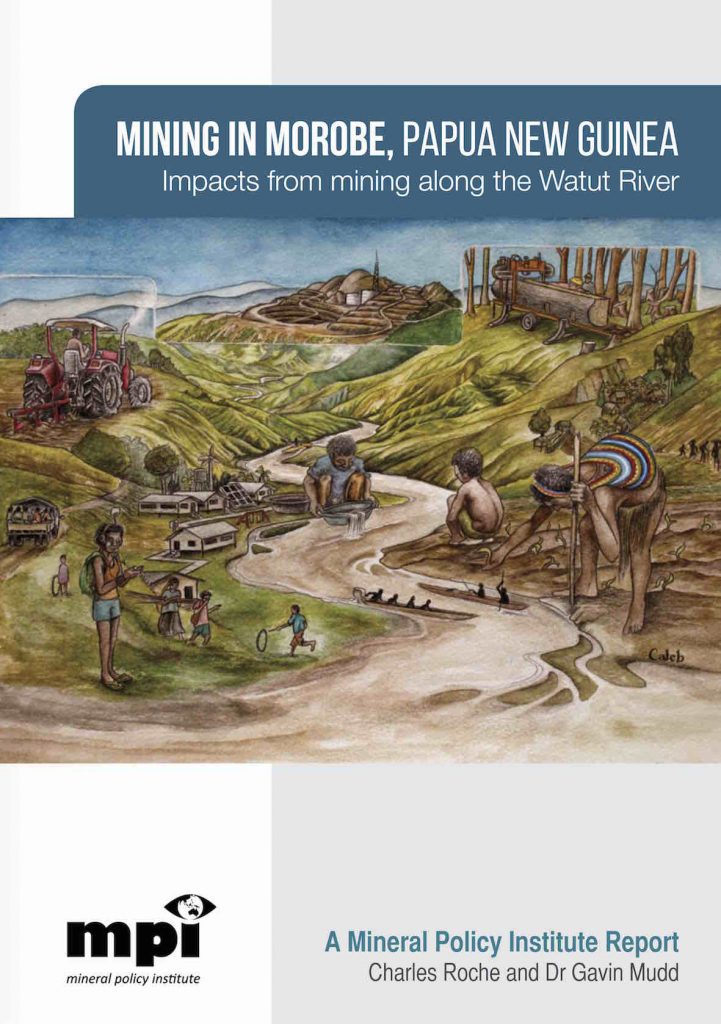
Exec Summ: This report is about the impact of mining on communities living along the Watut River and in the Morobe Province of Papua New Guinea. Given that similar reports could also be written about other mines it is also a report that applies more widely to the PNG mining industry. While the impacts from mining on the Watut River are minor in comparison to those at Porgera, Ok Tedi and Panguna, they are nonetheless serious. Serious because of the impacts on local people, the repetition of past mistakes and as an example of the slow progress of reform in the mining industry.
The impetus for this report comes from many sources. For the Mineral Policy Institute it is a continuation of our work on a range of mine-sites and mining related impacts in Papua New Guinea since 1995. Watut River Communities became increasingly concerned about riverine impacts from the Hidden Valley mine since construction commenced and asked MPI to assist in late 2010. Subsequently, in early 2012 MPI was commissioned by the Lutheran Evangelical Church of Papua New Guinea, with support from Mission EineWelt in Germany to assess impacts from mining in the Watut River region.
Mining In Morobe Papua New Guinea – Impacts, Assurance and Self-determination
Authors: Mudd, G & Roche C (2014)
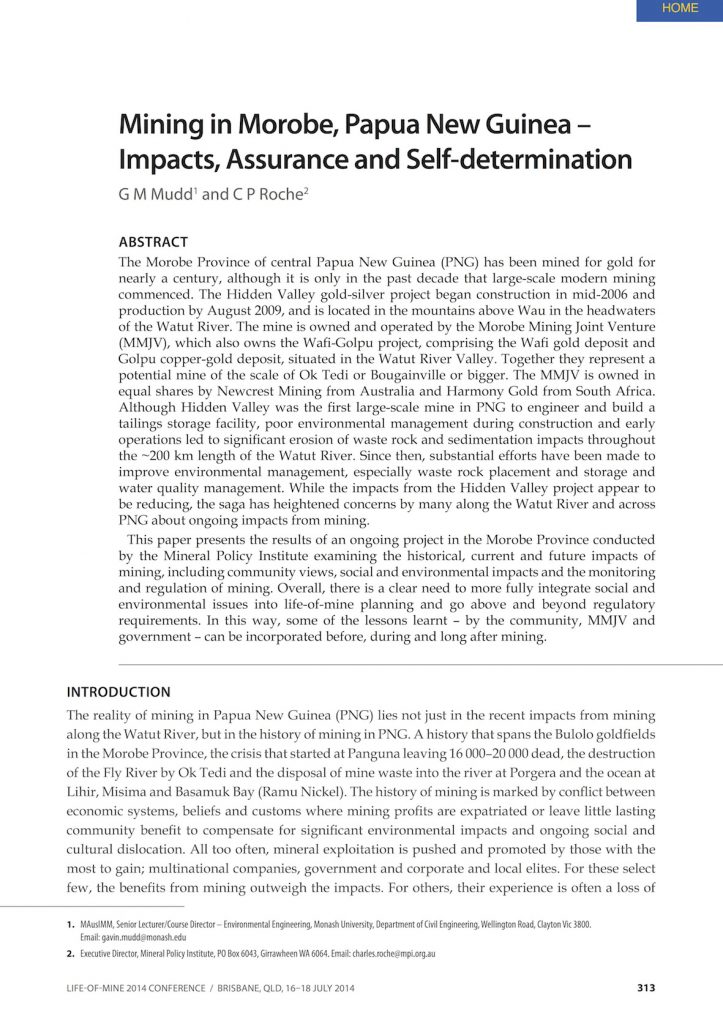
Abstract: The Morobe Province of central Papua New Guinea (PNG) has been
This paper presents the results of an ongoing project in the Morobe Province conducted by the Mineral Policy Institute examining the historical, current and future impacts of mining, including community views, social and environmental impacts and the monitoring and regulation of mining. Overall, there is a clear need to more fully integrate social and environmental issues into life-of-mine planning and go above and beyond regulatory requirements. In this way, some of the lessons learnt – by the community, MMJV and government – can be incorporated before, during and long after mining.
